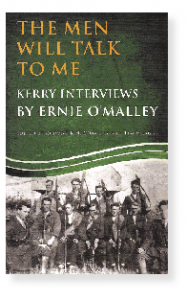Lone crusader: David Thornley and the intellectuals
Lone crusader: David Thornley and the intellectuals Edward Thornley (Ashfield Press, €21.50) ISBN 9789068798 The premature death of David Thornley in June 1978 deprived Ireland of a significant intellectual best known for his current affairs work on RTÉ’s Seven Days programme and as a Labour TD for Dublin North-West from 1969 to 1977. Unseated … Read more


